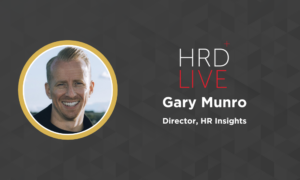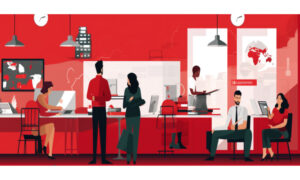Do you know how your employees are coping?
- 5 Min Read
Laura Matthews, workplace wellbeing consultant at Barnett Waddingham discusses the alarming statistic of coasting employees, and how to tackle this issue.
- Author: Laura Matthews
- Date published: Nov 21, 2018
- Categories

We live and work in a rapidly changing world which requires organisations to rethink their sense of purpose. This not only impacts the way that they do business, but also the way that they employ, engage and reward staff for the value that they generate. Just as important is an appreciation of the individuality of employees, as benefits that support one person will not necessarily support another. Some employees may be challenged by their role and others are simply coasting through their career.

Our latest Why BWell report found that 72% of UK workers consider themselves happy in their lives – an improvement on last year. However, this figure falls to 57% when isolated to happiness at work. There is also a widening wellbeing gap between employer and employees – this is the actual happiness and wellbeing of workers compared to perceived levels from the viewpoint of employers. With this in mind, companies must take a step back and think – what is really impacting happiness in the workplace?
Although most workers (56%) feel they are either flourishing or performing above average, a large proportion believe they are coasting (32%) or struggling (7%) in their careers. There are two types of coasters; conscious coasters who are content just plodding along, able but unwilling to put more effort in, and disengaged coasters, who want to make a difference by contributing more but feel restricted in their ability to achieve this in their role. Employers need to focus on how to unlock the value of this latter group, given the productivity challenges we face in the UK. Here are some ways of doing this:
How do you identify them?
There are various methods used by organisations to help identify employee needs, such as the use of HR, finance and business performance data. With this comes challenges though, such as where and how the data is stored, how accessible it is and whether you have the skills in-house to extract what you need. You’ll need to be able to meet these challenges if you’re going to use such data to better understand your workforce and inspire new policies to improve wellbeing. Many organisations undertake employee engagement surveys, but these are only a worthwhile exercise if companies act on the results and establish an honest and open dialogue with employees on progress. Employee survey data should also be analysed and considered against other HR metrics to give a more complete picture.
Understand your competitive advantage
Employees are your biggest competitive advantage but only if they are able to create value by delivering work that is meaningful for the organisation and themselves. You can’t maximise that advantage if you don’t understand it. A lot of organisations will often know more about their customers than their employees. HR systems collect information and data throughout an employee’s tenure with you. Combining this with employee feedback gives you real insight into how they are feeling and performing and shows that you are interested in them as an individual. Almost a third (29%) of coasters feel that no interest is being shown in them as a person.
Develop your competitive advantage or someone else will
Many organisations are reviewing and reinventing their sense of purpose and operating models. Future success is dependent on employees’ ability and desire to adapt, learn and develop and grow new skills. The research found that less than half of workers (47%) studied felt that their employers supported their personal and professional development. When asked if they could see themselves still working for the same organisation in 12 months’ time, coasters were by far the largest group (41%) who felt they would not be. This provides a huge incentive for employers to bridge the gap between coasting and above average employees – reducing the flight risk of these individuals and the overall impact on business.
Exchange of value
The relationship between employer and employee is becoming less transactional and much more about creating an experience which encourages shared value and benefit. At any point, the employee can decide that the value they are receiving from employment is not enough to keep them there and likewise the employer can decide that an employee is not creating enough value to sustain their continued employment. Meaningful work is known to be good for an individual’s mental health too. Less than half (48%) who coast say their job is meaningful and that they can add value in comparison to nine in ten (89%) who are flourishing within their role. Coasters are also almost three times less likely to feel recognised for the contribution they make in comparison to those who flourish (33% vs 80%).
Performance reviews
Annual performance reviews are increasingly seen as outdated by organisations. Performance is continuous and needs to be reviewed on a more regular basis, such as a monthly meeting. This also provides an opportunity for two-way discussion on any job, personal and professional development needs, to monitor and tweak set objectives, identify support and coaching needs and recognise and remove any performance barriers. This will improve engagement as well as productivity and give organisations a regular and up-to-date view of high performers and at-risk employees.
There is a lot to know about your workforce and understanding employees as individuals is key to driving engagement. Be supportive of career aspirations and remember that a happy workforce is a more productive workforce.








